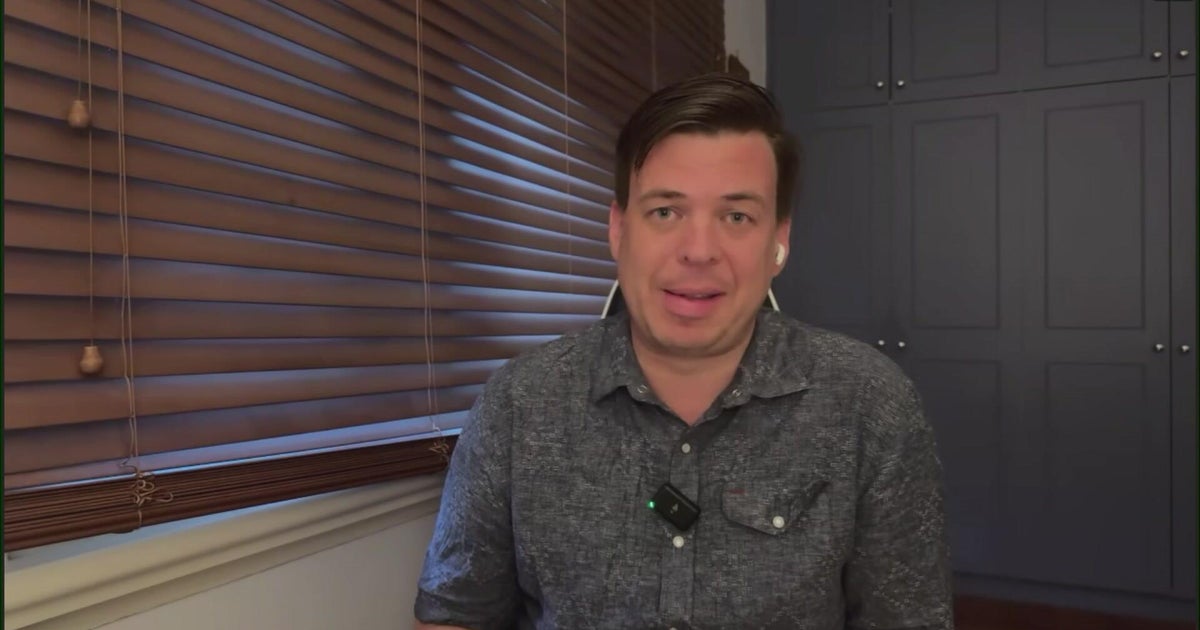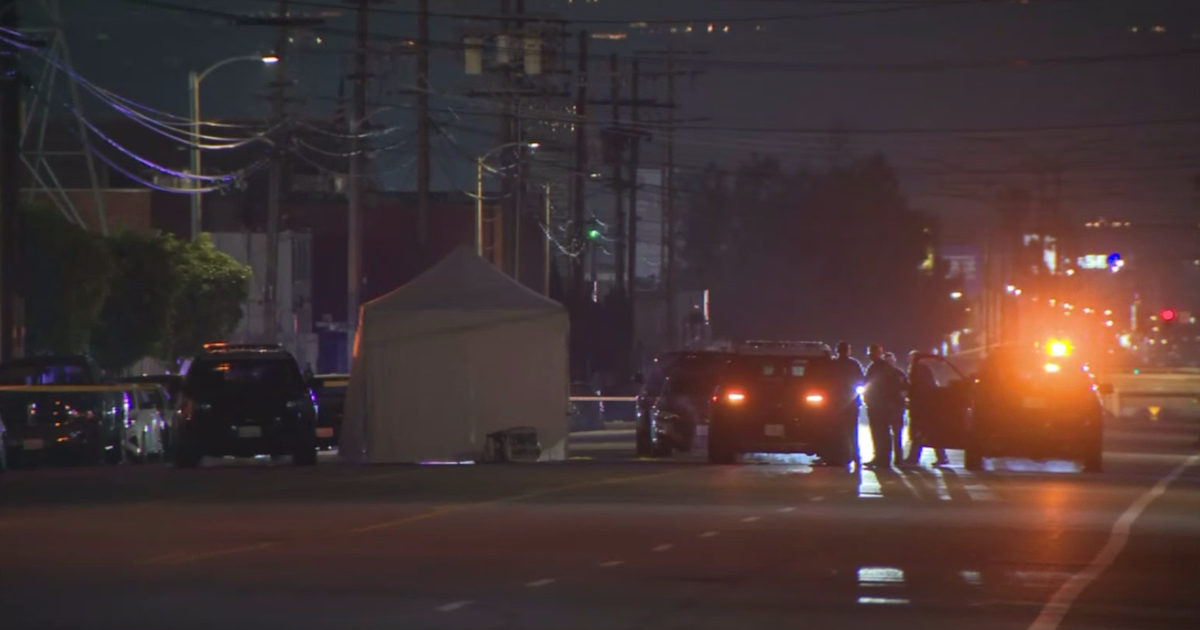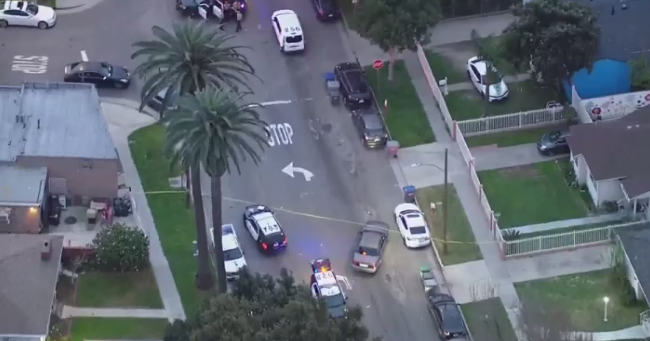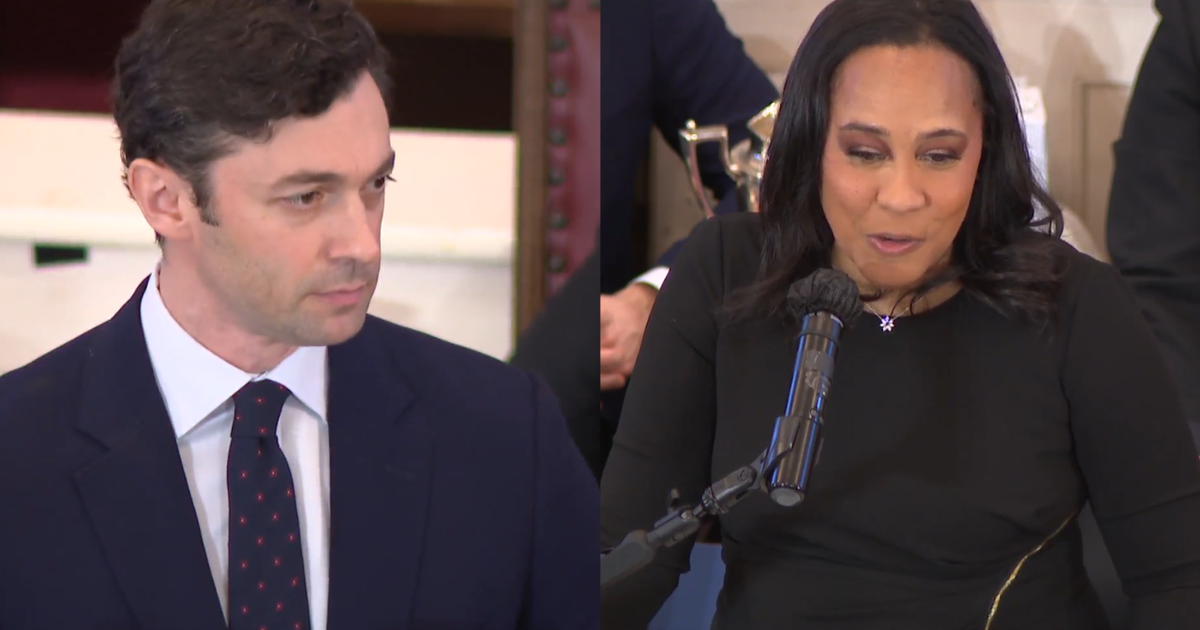Recent Rash Of Deadly Gun Violence Linked By Role Of Social Media
MIAMI (CBSMIAMI) – In the wake of Miami-Dade County's recent rash of deadly gun violence, South Florida leaders are examining the causes and one issue keeps arising - the role of social media. Too often what starts as a feud on Instagram or Facebook quickly escalates into violent retaliation.
CBS4's Jim DeFede spoke recently to three community leaders about this phenomenon. State Senator Jason Pizzo who tried unsuccessfully to tackle the issue legislatively, former NAACP President Ruban Roberts, and Hilton Napoleon, the legal advisor for the nonprofit group Parents of Murdered Kids.
This is a transcription of part of that conversation which aired on Facing South Florida with Jim DeFede on Sunday, June 6, 2021.
Jason Pizzo: The bill would have allowed for law enforcement to have contact with individuals who are unlawfully possessing firearms.
Jim DeFede: And what would that contact look like, what would that contact look like?
Jason Pizzo: Well, it could be preferable. It would be contact away from the home and then specifically not at 4:00 a.m. kicking down a door because it wouldn't be an exception for an arrest warrant. It'd be an exception basically for search. And right now, kids know especially that there's really nothing anyone can do about it. I mean, if my son goes on Facebook right now and says I'm going to shoot up the school tomorrow, absolutely that qualifies for law enforcement to come get them. However, in some weird perversion of the law or the lack thereof, a kid can load and rack a firearm and we can't do anything about it.
Ruban Roberts: I agree that there needs to be more attention to what's happening on social media. But they are cliques. These are not organized gangs. We don't have a hierarchy that you're dealing with. Police can't go to the 'Bloods' or the 'Crips' and say to the leader, 'Listen we're concerned about what happened over there in Hialeah Miami Lakes.' You can't do that. You have cliques.
Ruban Roberts: I don't know if we have the bandwidth or resources to look at every social media conflict that is happening and judge whether or not this is going to escalate to something that is more violent. So there has to be that prevention thing. There has to be an outlet for parents. Each one of those kids are young adults that are involved in the shooting. They go home to someone. They go home to a parent, they go home to a loved one.
Ruban Roberts: The concern of the parent of that loved is how the kid would be treated if they were to interface with law enforcement. Some of these parents want to turn the kids in. Some of the parents want to, you know, try to get their kid off the street. Some parents, even before it escalates to the point to where the kid is involved in a violent crime or murder, have made several attempts to engage the criminal justice system.
Hilton Napoleon: Most kids in the inner city and the statistics will show this, most of them make it out OK? It's just the things that we see on TV, well there is a big problem. Well, Ruben is basically saying, for a kid in their inner city to go and have a gun and to post it on social media, he's far, far away than the typical average kid that's already there. So the ones who are out there posting this on social media, they are they are down that path already. They're not the ones who you see doing other positive things in the community or trying to get their lives together. They're down that path and they have a very, very narrow scope. And it's almost like is is it have they gone too far already? We need to catch them before they get to the point where they're flashing guns.
Hilton Napoleon: Most of the mothers in our organization do not have closure. I can talk for hours, probably days, about the reasons why. But at the end of the day, we want closure. they demand closure and it's not happening.
Ruban Roberts: So it's still a preventative fashion, is not an intervention, is still preventative. You're still working on that. Those kids are, you know, at the point where they hope they have weapons at the point of where they have weapons, they are already gone. But the first thing that I suggested is that let's deal with them on that front end to make sure that we can get them out of this. And as far as now, when they are in this place where they're shooting over beefs or they're shooting over financial issues, whatever the case may be, we need to get the family and the community involved.
Jim DeFede: So you propose this this is the intent and you get pushback from both the right and the left, as I understand, which is why your bill went nowhere. You got pushback from the right in what ways? And pushback from the left.
Jason Pizzo: We got a lot of pushback from gun rights advocates because they thought that we were going to criminalize someone hunting with their dad, kids target shooting at a range. And, you know, it got bad. We got death threats to my staff. The Senate president at the time, Valvano, asked me to seriously consider withdrawing the bill because of the threats that we got.
Ruban Roberts: So, Jim, yes, I applaud Jason for trying to address to the gun violence issue. However, whenever there are any laws on the books, how those laws are implemented in certain communities, particularly the black community, it looks a little bit different.
Hilton Napoleon: Listen, from my perspective, from dealing with the families in the mothers particularly, they want change. They want results. One of the biggest problems and one of the biggest issues is that the status quo is still there and nothing is happening. I applaud Senator Pizzo for bringing his bill to light, because as a person who has prosecuted cases in a person who has defended cases, when you see the tangible evidence, a photograph of a person holding a firearm that is meaningful in court, that is probable cause to give the police officers in to go into the home and search the home and get the guns off the street. And while I agree that there need to be preventative methods, having that tool is a preventative method. I can show you five, six, seven, eight mothers who wish that somebody went into the individual's home that killed their child because there were and things on social media that could have been looked upon early on. The biggest problem, however, is that there's no trust in the community. A lot of these people are treated like they are criminals themselves. I have people who are victims of crimes, who are parents of victims of crimes, and they're not treated the way that you would expect them to.
Jason Pizzo: So I think the three of us are all going to agree on a couple of things which are necessary and critical before we even have a conversation of what is a plan or what does a solution look like. And I think Ruben and I think Ruben hit it on on the head. I have said for a long time it's not popular because you get a lot of funding the agencies under this under the guise of gangs. But we don't have.
Jason Pizzo: These kids are not gangs. These are not, this is not criminal sophistication, criminal enterprise. They're loosely affiliated kids gathered in areas that are low hanging fruit, really for a number of things that and I've said this on the Senate floor. I've said this in a courtroom. I've said this on the campaign trail. And I said it at my dinner table. You know, if they're going to smoke a joint, it's going to be the in back of someone's house where the cops are not going to arrest them. OK, but if the kids were living in certain neighborhoods there on the street corner doing the same thing, that's reality.
Jason Pizzo: What we don't agree on is when Ruben says that by the time you see a kid on social media with a gun, he's gone, I don't believe that. And I'll tell you that I really don't.
Ruban Roberts: I have to jump in here because I want to make something clear. For the record, I never give up on any of my kids or adults understand it. For the record, I don't care if he has 10 guns around. Everybody is redeemable in my book and I want that to be understood. Don't ever, ever misinterpret what I'm saying that I give up on a black man.
Jason Pizzo: But I listen, I listen to everything. And when he said but by the time it gets to a kid on social media with a gun, he's gone.
Ruban Roberts: Yes, I gave up on that kid when I didn't even if I if I said that and I had to play the tape back, I don't mean that I'm giving up on the kid. Understand what I'm saying? By the time they have that gun in hand, that means they're closer to using that gun.
Jim DeFede devoted the entire half-hour of Facing South Florida on Sunday June 7, to explore the recent uptick in gun violence across Miami-Dade, specifically the mass shooting at a banquet hall in northwest Miami-Dade. Click here to watch the entire episode.







